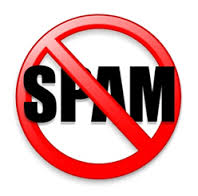CAN-SPAM and the Impact on Trade Show Exhibitor Emails
Tradeshow organizers gather attendee email addresses in the 
Based on our experience with exhibitor emailing, here are some things to consider:
1. CAN-SPAM compliant emails must contain an easy way for the attendees to Unsubscribe (OPT-OUT) and they must be unsubscribed within ten (10) business days of the request. Since the attendees gave the show organizer their email address, it is quite reasonable for the attendee to expect that when they click the required Unsubscribe link on an exhibitor sponsored email, that the show organizer will be responsible for Unsubscribing them from future exhibitor sponsored emails. This becomes problematic when the show organizer is not in control of the emails that are being sent out by exhibitors.
2. The fact that the show organizer has “permission” to use the attendee’s email address does not imply that all of their business partners, share in that permission. When exhibitors are given the attendee list, emails sent by those exhibitors would technically be considered Unsolicited Bulk Email (UBE) according to the spirit of CAN-SPAM, which is the industry standard definition of SPAM according to The Spamhaus Project. The sending of Unsolicited Bulk Email is against most all ISP Terms of Service worldwide, is illegal in many countries, and is against Spamhaus SBL policy.
3. Regardless of the law and whether the FTC will take action, giving or selling the registration list can sour the trade show experience for attendees if they receive hundreds of unsolicited emails from exhibitors leading up to the show. Further, email address lists received by exhibiting companies at trade shows can end up in the hands of list brokers who in turn sell them to email marketing firms. Getting spammed by a show’s exhibitors is one thing but getting unsolicited email for years from unaffiliated firms is even more annoying to the attendee that trusted the show organizer with their information.
4. Attendees that opt-in for exhibitor emails are not expecting their information to be given to every exhibitor at the event. An opt-in statement that says “Would you like to receive informative emails before the event from our sponsors and exhibitors?” is actually a dishonest question. If the attendee list is being given to the exhibitors, the opt-in statement should be, “Can we sell your contact information, including email address, to our exhibitors so they can send you email marketing before and after the event.”
Summary
An Internet search on CAN-SPAM, spam or “permission based email marketing” will bring up a wealth of information that suggests the best approach is to maintain control over the registered attendee list. If exhibitors want to pay for a way to reach that list with their pre-show marketing messages you can send the emails for them or hire a 3rd party specializing in the sending of emails, while protecting the list’s confidentiality. Both of these approaches enable you to comply with the CAN-SPAM rules, eliminate spam, control the number and quality of the emails your attendees receive while allowing exhibitors and attendees alike to maximize their trade show ROI.
Background
The CAN-SPAM Act of 2003 sets rules for commercial email including requirements for commercial messages and recipient rights. Under the law the Federal Trade Commission (FTC) was given jurisdiction to enforce the law and given authority to levy penalties of up to $16,000 per non-compliant email an offending company sends, so understanding how it affects the use of email lists by trade shows is important. The “The CAN-SPAM ACT: A Compliance Guide for Business” available from the FTC website, explains the provisions of the law in straight forward terms but how it applies to the use of a trade show’s registered attendee data is not clearly spelled out.
In addition, there is the business practice known as “permission based marketing”. Most, if not all Internet Service Providers (ISPs), consider email to be a permission-obligatory marketing channel and will not allow any emails that are not such. Yet unlike the Canadian and European laws, the US CAN-SPAM law does not mandate that marketers obtain the affirmative consent of email address owners before sending them commercial email. Although CAN-SPAM does legislate certain identity and consumer choice rules pertaining to marketing email, it does not require that this channel work on a strictly opt-in basis. This gives the email marketer wide latitude in using this vehicle.
Disclaimer
Event Technologies is not a law firm and this document is not intended as a legal guide on the use of email as a marketing tool. It is rather a summary of our experience working with many of our trade show organizer clients who send emails on behalf of their exhibiting organizations and why these clients no longer give the attendee email addresses to the exhibitors.
